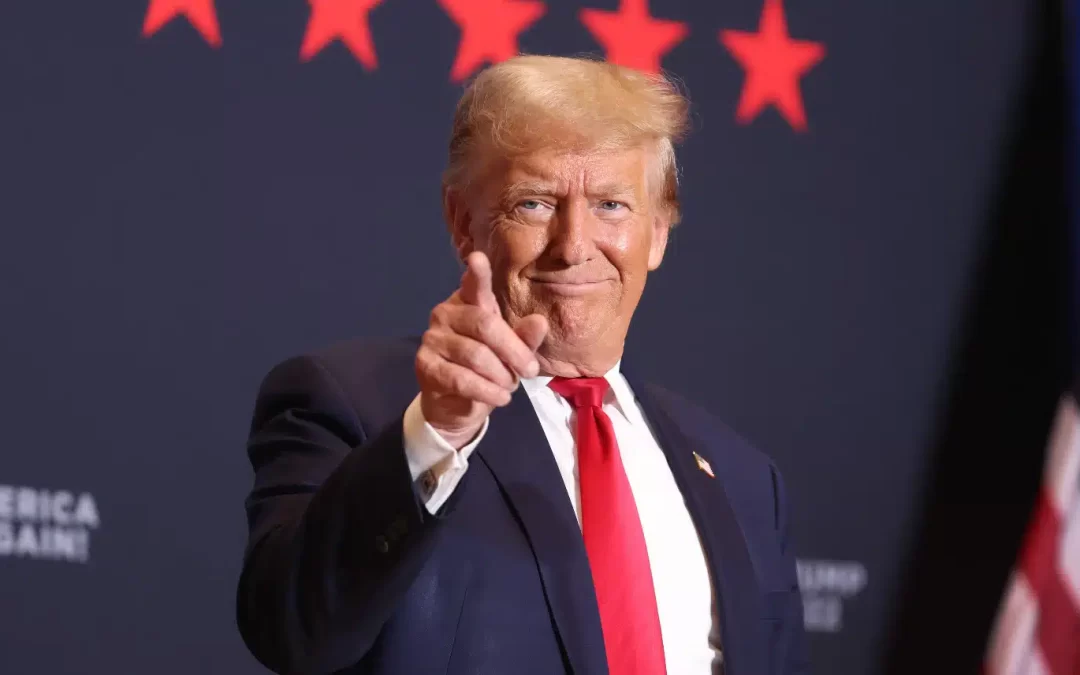During the 2016 presidential primary cycle, big-money Republican donors like Paul Singer, Ken Griffin, Joe Ricketts and Stephen Schwarzman contributed millions of dollars to GOP contenders not named Donald Trump in an effort to stop his rise and block him from the nomination.
It didn’t work, obviously: Trump not only captured the Republican nomination, he went on to shock the political world by defeating the establishment’s candidate, Democratic nominee Hillary Clinton.
This election cycle, Singer & Co. initially began funneling money to Trump’s primary challengers, though not nearly at levels seen during the 2016 race. But now, big-money donors have turned off the cash spigots to Trump’s opponents because they see him as being on a glide path to the 2024 GOP nom.
“It’s becoming clear the cavalry’s not coming,” Ken Spain, a longtime GOP strategist who advises the business interests about Washington, told The Wall Street Journal. “The donor community has come to recognize the strength of Trump and the difficulty in dislodging a major part of the base from him. You’re tilting at windmills if you try.”
The WSJ added:
Rob Collins, who co-chairs a super PAC supporting South Carolina Sen. Tim Scott, wrote in a new memo to donors that it was making a move that “would be obvious in the business world” by canceling much of its planned advertising this fall.
“This electorate is locked up,” he wrote, according to a copy of the document reviewed by The Wall Street Journal, adding that Republicans who oppose Trump would be “wasting money” until the GOP field thins.
In addition to commanding the polls, the former president is also a fundraising juggernaut. “Fueled heavily by small donors,” the WSJ reported, “Trump’s campaign raised about $25 million between July 1 and Sept. 30, while DeSantis’s, the next highest, raised $11 million.” While anyone can donate a max of $3,300 during the primaries to various candidates, wealthy donors are able to put millions into super PACs that are aligned with certain candidates.
The WSJ quoted an anonymous source who works closely with several financial industry donors who predicted that big Republican money would mostly be absent from the presidential race and would instead be redirected towards winning back control of the U.S. Senate. Another source told the outlet that large GOP donors are upset that Trump is doing so well but are resigned to the belief that he will become the party’s nominee.
That said, not all major GOP donors are sitting on the sidelines. For instance, one of the party’s most prolific and generous donors, Wisconsin-based shipping mogul Richard Hihlein and wife Elizabeth, handed a Ron DeSantis-aligned super PAC $2 million earlier this year.
“Billionaire Oracle co-founder Larry Ellison has said he is all-in on a Scott campaign, and he donated $30 million to a Scott super PAC ahead of the midterm elections. Robert Bigelow, a Las Vegas hotel and aerospace entrepreneur, gave $20 million in March to DeSantis’s super PAC,” the WSJ added.
Some major GOP donors including Singer’s network and that of the billionaire Koch family may coalesce around a top finisher in Iowa, the outlet reported. If that happens, then they will pour millions into that candidate’s campaign through the Super Tuesday primaries, at least.
But that said, “The aides who have discussed such a scenario acknowledge it is unlikely to come to pass—and probably wouldn’t work anyway,” the WSJ reported.
Not only is Trump blowing out all GOP competitors, he is increasingly gaining on President Joe Biden and, in a growing number of surveys, surpassing the incumbent commander-in-chief.
Late last month, a leading pollster some consider to be the top in the nation predicted a potential “electoral landslide” for Trump next year as President Joe Biden continues to slide in approval ratings and “Bidenomics” continues to eat into ordinary Americans’ paychecks.
In an interview with radio host Michael Patrick Leahy for The Tennessee Star report on Tuesday, pollster John McLaughlin discussed what current state and national polling means, what polls to watch, and how to analyze new polling as it comes out in the months ahead.
He went on to say that electorally speaking, Trump could be on his way to a blow-out of Biden next year.









